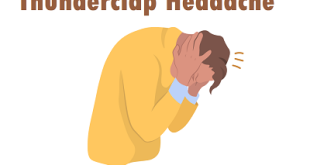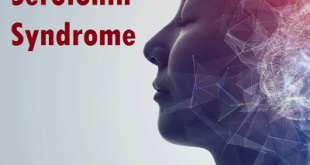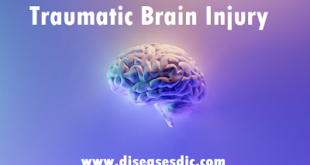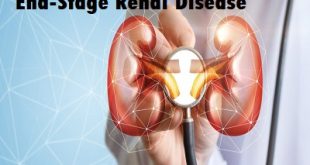Definition of Encephalopathy
Encephalopathy is referred to the abnormal brain structures or improper functioning of your brain. Depending on the underlying pathology, it can cause long-term or short-term problems. The symptoms may get stable, static or get worse as the disease progresses.
Also, significant brain loss is a cardinal feature of encephalopathy. There is no one population, in particular, that is more prone to getting the encephalopathy. Because it is categorized in many types, it can affect any population of any age and gender.
There are many types of encephalopathy and brain disease. Out of these, some may be permanent, while others may be just temporary; some are present at birth, while others may be acquired after birth and may get worse as one grows up.
Epidemiology
Demographic and epidemiological data suggest that encephalopathy correlates with age. The number of patients with encephalopathy increases after the age of 65 years.
People older than 75 years, who reside in nursing homes have a 60% chance of developing encephalopathy, whereas, in a population younger than 55 years, this proportion is 1.1%. It occurs in 10–40% of hospitalized patients older than 65 years, whereas 8–70% of patients develop septic encephalopathy.
According to data from the United States, encephalopathy has being registered in 100–200,000 patients with anoxia and 12–16% of patients with thiamine deficiency, every year, In patients with cirrhosis, the hepatic encephalopathy develops in 45–80% of cases, depending on the severity of liver damage.
Types of Encephalopathy
There are many types including:
Hepatic encephalopathy
A problem with the liver causes a build-up of toxic substances that the liver normally removes. These toxic substances then disturb the normal functioning of the brain. Hepatic encephalopathy can be caused by a chronic liver condition, an infection, an overdose of prescription medications or bleeding in the digestive tract.
Chronic traumatic encephalopathy (CTE)
This is probably caused by repeated blows to the head and concussions. It is associated with contact sports such as boxing and football.
Chronic traumatic encephalopathy
Hypoxic-ischaemic encephalopathy
In this case, the lack of oxygen to the brain leads to abnormal brain function. This can be caused by heavy bleeding, near-drowning or near-suffocation.
Hashimoto’s encephalopathy
This type of encephalopathy is thought to be caused by a person’s immune system attacking the brain.
Risk factors
The risk factors are still not completely known, but you may be at risk of a neurological disorder if:
- You have cardiovascular disease
- A liver condition
- Diabetes
- Kidney disease
- A tendency to develop blood clots
- Have been exposed to poisonous substances such as carbon dioxide
- Having cancer and have undergone chemotherapy
- Consume excessive alcohol and harmful drugs
Causes of Encephalopathy
Some examples of causes include:
- Infectious (bacteria, viruses, parasites, or prions),
- Anoxic (lack of oxygen to the brain, including traumatic causes),
- Alcoholic (alcohol toxicity),
- Hepatic (for example, liver failure or liver cancer),
- Uremic (renal or kidney failure),
- Metabolic diseases (hyper- or hypocalcemia, hypo- or hypernatremia, or hypo- or hyperglycemic),
- Brain tumors,
- Many types of toxic chemicals (mercury, lead, or ammonia),
- Alterations in pressure within the brain (often from bleeding, tumors, or abscesses), and
- Poor nutrition (inadequate vitamin B1 intake or alcohol withdrawal).
These examples do not cover all of the potential causes of encephalopathy but are listed to demonstrate the wide range of causes.
Although numerous causes of encephalopathy are known, the majority of cases arise from several major categories (some examples in parentheses):
- Infection (HIV, Neisseria meningitides, herpes, and hepatitis B and hepatitis C),
- Liver damage (alcohol and toxins),
- Brain anoxia or brain cell destruction (including trauma), and
- Kidney failure (uremic).
Some drugs may cause encephalopathy; for example, posterior reversible encephalopathy syndrome (PRES) may occur due to the use of drugs like tacrolimus and cyclosporine. This syndrome manifests with symptoms of headache, confusion, and seizures.
Symptoms
The main symptom is an altered mental state. This can involve:
Having trouble staying alert
- Having problems thinking or processing information
- Feeling confused
- Forgetting things
- Behaving out of character
- Finding it hard to concentrate
- Feeling very tired
These symptoms may get worse over time. The progression depends on the type of encephalopathy and how severe it is. In addition to an altered mental state, a person with encephalopathy may experience:
- Involuntary muscle twitching
- Involuntary eye movements
- Shaking
- Muscle weakness
- Trouble swallowing or speaking
- Seizures
Complications
Complications vary from none to profound mental impairments that lead to death. The complications can be similar in some cases. Also, many investigators consider encephalopathy itself to be a complication that arises from a primary health problem or primary diagnosis.
Complications depend on the primary cause and can be illustrated by citing a few examples from the wide variety of causes:
- Hepatic (liver) encephalopathy (brain swelling with herniation, coma, death)
- Metabolic encephalopathy (irritability, lethargy, depression, tremors; occasionally, coma or death)
- Anoxic encephalopathy (wide range of complications, from none in short-term anoxia to personality changes, severe brain damage to death in long-term anoxic events)
- Uremic encephalopathy (lethargy, hallucinations, stupor, muscle twitching, seizures, death)
- Hashimoto’s encephalopathy (confusion, heat intolerance, dementia)
- Wernicke’s encephalopathy (mental confusion, memory loss, decreased the ability to move eyes)
- Bovine spongiform encephalopathy (BSE) or “mad cow disease” (ataxia, dementia, and myoclonus or muscle twitching without any rhythm or pattern)
- Shigella encephalopathy (headache, stiff neck, delirium, seizures, coma)
- Infectious causes of pediatric encephalopathy (irritability, poor feeding, hypotonia or floppy baby syndrome, seizures, death)
Diagnosis and test
To diagnose encephalopathy, your doctor will ask you questions about your medical history and your symptoms. They will also perform a medical exam to check for mental and neurological symptoms.
If your doctor suspects that you have a brain disease, they may conduct tests to determine the causes and severity of your disease. Tests may include:
- Blood tests to detect diseases, bacteria, viruses, toxins, hormonal or chemical imbalance, or prions
- spinal tap(your doctor will take a sample of your spinal fluid to look for diseases, bacteria, viruses, toxins, or prion)
- CTor MRI scan of your brain to detect abnormalities or damage
- Electroencephalogram (EEG) test to measure the electrical activity in your brain
How to treat Encephalopathy?
You’ve got a number of choices. A lot depends on your specific situation. For instance, your doctor will take into account things like:
- What triggers your episodes
- How severe a case you have
- The types of symptoms you get
- How serious your long-term liver disease is
- How old you are and your overall health
Your doctor may suggest two types of drugs that reduce the toxins in your body:
Lactulose
This is a type of sugar that can make you have more bowel movements. This helps get rid of some toxins from your body, like ammonia, which can trigger HE.
Antibiotics
Drugs like neomycin (Neo-Fradin) and rifaximin (Rifagut, Xifaxan) may help. They curb bacteria that create toxins when they digest your food.
Your doctor may also ask you to take some other steps that can improve your symptoms:
Change your diet
If you eat a lot of meat, your body may make too much ammonia. Your doctor may ask you to cut back, but you still need to get enough protein from other sources. Try dairy and veggies. Also, eat frequent small meals rather than three big ones a day.
Skip alcohol
Even a little bit can be risky for you because it damages your liver.
Treat infections
They can affect the way your liver works. You may need antibiotics to get rid of them.
Treat urinary blockages
If you can’t pee normally, it can trigger your HE. Treatment for the infection or disease that’s causing it can help.
Stop some medications
Certain medicines, such as sedatives or narcotics, may cause problems with your liver.
Treat constipation
You may need to eat less meat and more vegetables. This can help you have more regular bowel movements so you can flush toxins from your body.
Prevention
Some types of encephalopathy such as hereditary types are not preventable. However, other types are preventable.
Making the following changes can reduce your risk of developing many of the underlying causes such as:
- Avoiding excess alcohol
- Reducing exposure to toxic substances like drugs
- Eating a healthy diet
- Seeing your doctor regularly
Living a healthy lifestyle can help reduce your risk factors for brain disease.
 Diseases Treatments Dictionary This is complete solution to read all diseases treatments Which covers Prevention, Causes, Symptoms, Medical Terms, Drugs, Prescription, Natural Remedies with cures and Treatments. Most of the common diseases were listed in names, split with categories.
Diseases Treatments Dictionary This is complete solution to read all diseases treatments Which covers Prevention, Causes, Symptoms, Medical Terms, Drugs, Prescription, Natural Remedies with cures and Treatments. Most of the common diseases were listed in names, split with categories.








I have a problem with my brain, like having frequent headache on my forehead close to my eye and when am reading I don’t use to understand and after reading I don’t use to remember what I read could Encephalopathy be the problem
Thank you for using our app. Please consult a doctor to get rid of this problem.
I have problem with my brain, like having frequent headaches close to my eye and when am reading I don’t use to understand and after I finish reading I don’t use remember what I read could it be Encephalopathy is the problem
Please consult a neurologist.
Reading of entire, I feel it is quite exhaustive and beneficial for every one.
In general it is exhaustive for one to digest about the disease.
am having problems with my concentration and remembering what I read and also getting so quite I don’t talk much since my brain processes things very slow make it heard for me to even social with pro active people.what might be the problem
please consult a neurologist.
I am 79 years. And have this condition for the last 50 years. It is a lack of mental clarity that I have been living with. It has increased in the last 10years. It is a feeling of mild intoxication, that prevents experiencing the presence in its fullest. Almost like in a dream. It affects memory retention of most recent past experiences and general memory. I will be glad for any advice regarding treatment